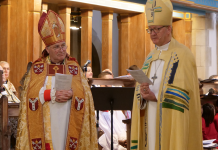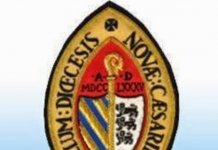Myriad aims to serve the Church of England in its vision and strategy, and also other denominations and networks, in the work of church planting
Myriad proposes a ‘both-and’ vision in developing the relationship between parish churches and church planting.
Myriad aims to equip ordained leaders to support lay people in planting new worshipping communities.
In light of the recent press and social media interest in Myriad, we have prepared the following statement to clarify some important issues.
All of the Myriad team are involved in parish churches, some have served as parish priests for many years, and we love the Church of England. And so we have been saddened by some of the misunderstanding around the Myriad vision. We understand that this is a time of great challenge for the church in which many of us are exhausted and overwhelmed, and we are deeply sorry for anything in the way that we have presented Myriad that has caused hurt or frustration. We do not think that priests or parishes are limiting factors and we are not proposing that we divert resources away from them. In fact, the proposal that lay people can be supported in leading new worshipping communities relies on ordained leaders with theological and pastoral understanding. The Reformed Catholic tradition of the Church of England has a clear understanding of the role of priests in proclaiming the gospel, teaching the apostolic faith and administering the sacraments of holy communion and baptism, as well as the importance of parish and place. Myriad affirms this tradition and nothing in our approach undermines these core understandings of Anglican ecclesiology. We have a ‘both-and’ vision which wants to develop the partnership between parish churches and church planting.
The word ‘myriad’ suggests a variety of lights and colours, and this reflects our desire to serve and resource every form of church from parish churches to new worshipping communities. We are encouraged by the many different expressions of church that we see developing within the Church of England, and we want to shine a light on what God is already doing and help the church learn and grow together. We are keen to learn from other parts of the Anglican Communion who have much to teach us in this area.
We are compelled by the missionary need and the scale of God’s call, summed up in the Declaration of Assent for the gospel to be ‘proclaimed afresh in each generation’. And our experience has shown us that planting churches reaches new people and younger people. Enabling lay people to explore planting churches gives fresh opportunity for this to be expressed in new ways. Of course, they will need support and training and accountability, and Myriad is offering resources and careful thought to the church to enable this to be done well and safely. We do not come with all the answers, but we want to work alongside those who are exploring these questions and opportunities.
Myriad has been established by the Gregory Centre for Church Multiplication to serve the Church of England. It is sponsored by the Bishop of Islington and receives no Diocesan or central Church of England funding. We are offering our experience of church planting to serve the national vision for 10,000 new Christian communities but our contribution is one of many working towards this aim and we will work in partnership with dioceses and churches and the leadership of the national church.










